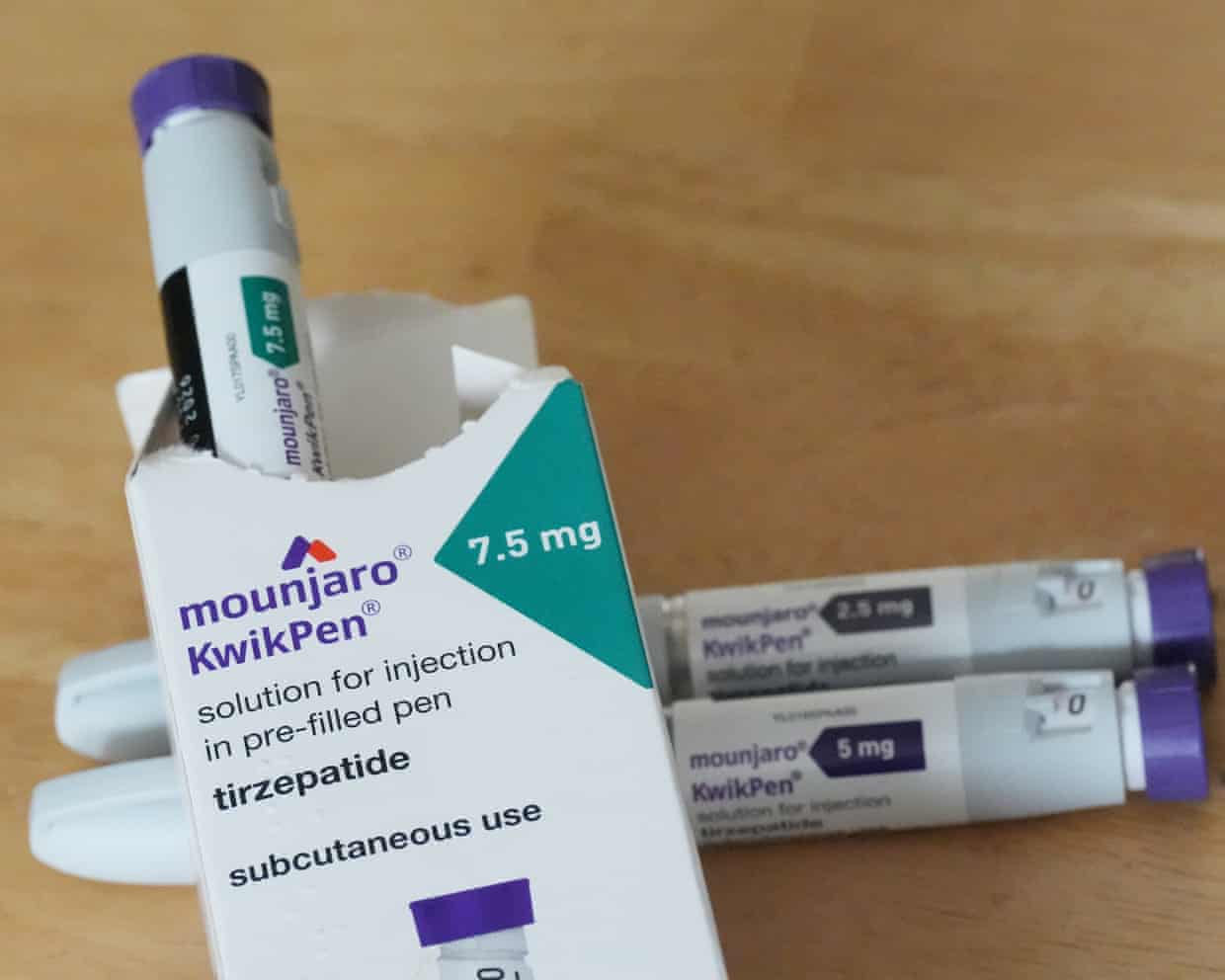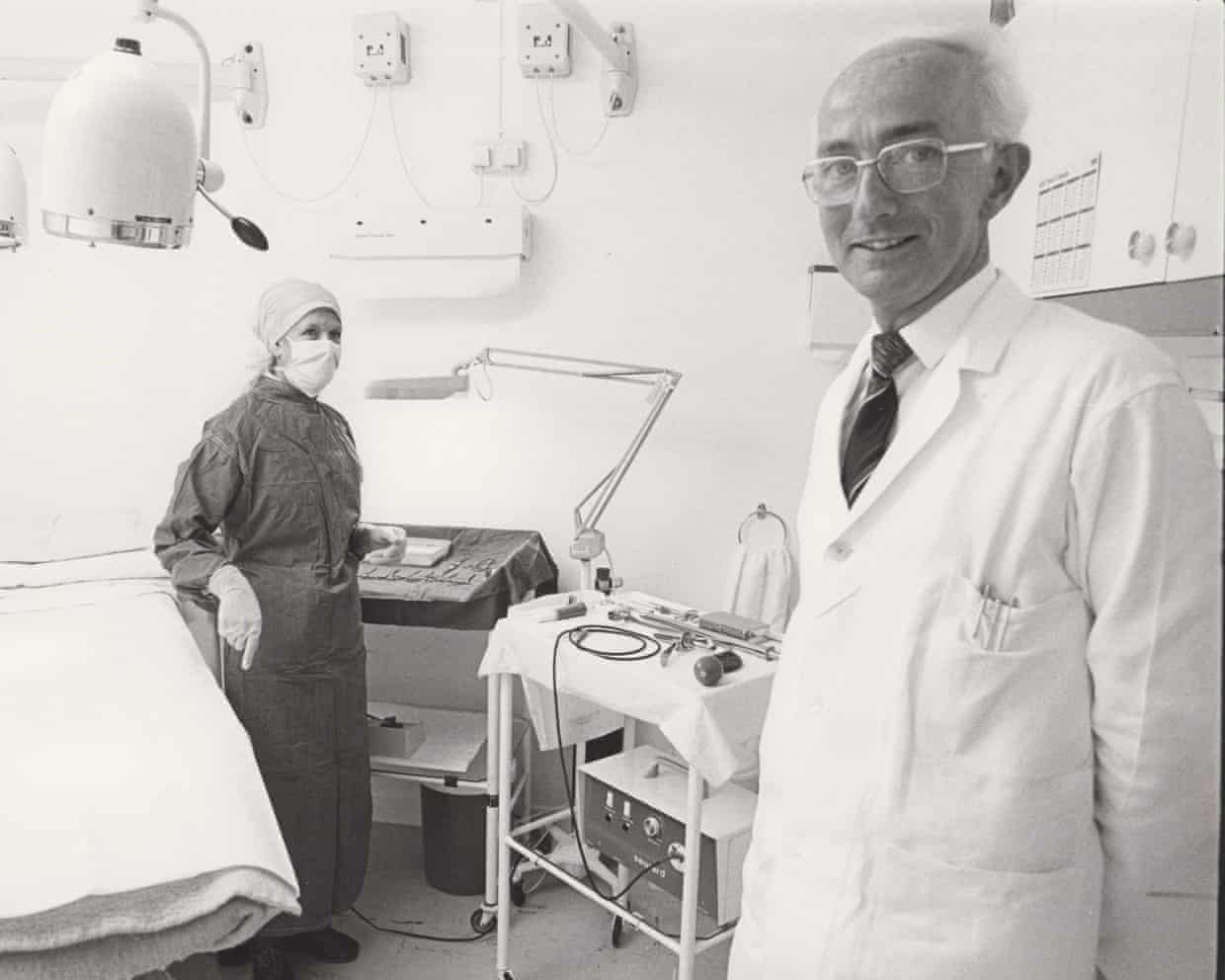People who stop using Mounjaro suffer reversal of health benefits, says study

People who stop using the weight-loss jab Mounjaro not only tend to regain weight, but experience a reversal in other health improvements too, research suggests.Mounjaro, which contains the active ingredient tirzepatide, has become a popular medication for weight loss, with studies suggesting that it can help people lose an average of 20% of their body weight after 72 weeks of treatment.However, research has previously found that people who stop using tirzepatide tend to regain much of the weight they have lost.Now experts studying results from a clinical trial known as Surmount-4 say other benefits seen with the medication, such as reduced blood pressure and lower levels of “bad” cholesterol, also go into reverse upon stopping the jabs.Naveed Sattar, a professor of cardiometabolic medicine at the University of Glasgow who was not part of the team but was involved with previous work on the trial, said “the findings are not a surprise, as excess weight is a well-established driver of elevated blood pressure and impaired glucose control”.
He added: “Consequently, when weight lost through therapeutic interventions is regained, these cardiometabolic risk factors typically rise in proportion to the speed and extent of weight regain.“Sustained weight management remains a critical challenge, but there is hope that newer, more affordable strategies to support long-term weight loss maintenance will emerge in the coming years.”Studies have also suggested the use of tirzepatide and other weight-loss drugs in people with heart conditions reduces the risk of hospitalisation for heart failure or death from any cause.“So stopping them could remove a protective effect,” Sattar said.Writing in the journal Jama Internal Medicine the researchers – which included experts from the pharmaceutical company that makes Mounjaro, Eli Lilly – report how they analysed data from the Surmount-4 trial, a study involving participants with obesity or who were overweight and had at least one weight-related health problem.
All participants received tirzepatide for 36 weeks, alongside diet and exercise support, before being randomly split into two equal-sized groups, one of which continued the medication for a further 52 weeks, while the other switched to a placebo for this period.Both participants and researchers were unaware at the time as to who was in which group.The team focused on results from 308 participants who had lost at least 10% of their body weight by the end of the initial 36-week period before switching to the placebo, finding that one year after stopping tirzepatide, 82% of these participants had regained 25% or more of their initial weight reduction.The team found that greater weight regain at the end of the study was associated with greater reversal of improvements not only in weight, but also in measures including waist circumference, levels of “bad” cholesterol, blood pressure, and blood glucose levels.“Overall, at week 88, participants with 75% or more weight regain after tirzepatide withdrawal reversed cardiometabolic parameters to baseline (week 0) values,” the team write, although they note those with up to 50% weight regain still showed improvements in these areas compared with the start of the study.
The team say the findings “support the importance of long-term maintenance of weight reduction through lifestyle intervention and obesity management medications to sustain cardiometabolic benefits and improved health-related quality of life”.Jane Ogden, the emeritus professor in the School of Health Sciences at the University of Surrey added that taking weight-loss jabs does not always create healthier eating and exercise habits, noting it can sometimes lead to poorer diets as people lose the motivation to eat well and prepare food.“Once stopping taking the medication, people show weight regain as they return to their previous behaviours.With this can come a reversal in cardiac benefits as their diet and exercise behaviours return to how they were before,” she said.Another piece of research suggests that women who stop using weight-loss medications such as tirzepatide or semaglutide before becoming pregnant or early in pregnancy tend to gain more weight while pregnant and have a higher risk of preterm delivery, gestational diabetes and hypertensive disorders of pregnancy than those who had not used such drugs.
However, Sattar cautioned that the latter study does not prove cause and effect, and said further trials are needed.“Women receiving [weight-loss jabs] would likely have entered pregnancy at a lower weight than they otherwise would have, and this weight difference is extremely difficult to fully account for in observational analyses,” he said.“Therefore, the findings should be interpreted with caution.”

The carer’s allowance scandal – a timeline
Ministers have announced a major review of the penalties imposed on hundreds of thousands of unpaid carers after a damning independent investigation of the carer’s allowance scandal.The inquiry by Liz Sayce was launched after the Guardian revealed how a catalogue of failures at the Department for Work and Pensions (DWP) had left scores of vulnerable families with huge debts and hundreds with criminal convictions for fraud.Those who care for loved ones for at least 35 hours a week are entitled to £83.30 a week in carer’s allowance, as long as their weekly earnings do not exceed £196. But if they exceed this limit, even by as little as 1p, they must repay that entire week’s carer’s allowance

More than 100 MPs urge Streeting to approve prostate cancer screening
More than 100 MPs, including Rishi Sunak, have urged Wes Streeting to introduce screening for prostate cancer.The UK National Screening Committee, a government agency that advises ministers and the NHS about all aspects of screening, will recommend whether men at higher risk of the disease should be offered checks. It is due to write to the health secretary later this week, the Telegraph reported.Sunak, who is leading a cross-party alliance of 125 MPs, met Streeting on Monday evening to hand him an open letter urging the government to introduce tests so men at the highest risk, including Black men, men with a family history of prostate, breast or ovarian cancer, and those carrying the BRCA1 and BRCA2 genes, are “no longer left behind”.The letter says: “Our current opportunistic PSA [prostate-specific antigen] testing system is unstructured, inefficient and unfair – a postcode lottery where some men succeed because they know to ask or can pay privately, while others are turned away despite repeated requests

John Stuart Brown obituary
In 1979, the British Medical Journal published an article by a Kent GP, John Stuart Brown, titled “Minor operations in general practice”.Brown, who has died aged 90, wrote that undertaking an average of four minor operations a week in his GP surgery had huge advantages compared to referring patients to hospital. It was faster, more convenient for patients and cost-effective, saving the area health authority more than £15,000 a year. He estimated the average cost of a procedure in his GP surgery was £5, compared to £78.24 in hospital

People who stop using Mounjaro suffer reversal of health benefits, says study
People who stop using the weight-loss jab Mounjaro not only tend to regain weight, but experience a reversal in other health improvements too, research suggests.Mounjaro, which contains the active ingredient tirzepatide, has become a popular medication for weight loss, with studies suggesting that it can help people lose an average of 20% of their body weight after 72 weeks of treatment.However, research has previously found that people who stop using tirzepatide tend to regain much of the weight they have lost.Now experts studying results from a clinical trial known as Surmount-4 say other benefits seen with the medication, such as reduced blood pressure and lower levels of “bad” cholesterol, also go into reverse upon stopping the jabs.Naveed Sattar, a professor of cardiometabolic medicine at the University of Glasgow who was not part of the team but was involved with previous work on the trial, said “the findings are not a surprise, as excess weight is a well-established driver of elevated blood pressure and impaired glucose control”

Time for doctors to face salary reality | Letters
Your correspondent (Letters, 19 November) recounts her career as a doctor in the NHS where, despite rising to senior consultant, her final year’s salary before tax was just over £100,000, a figure she defines as “a bit pathetic”. To most Guardian readers, that figure is a small fortune. By way of comparison, after 37 years as a primary school teacher, including 24 years as a head, my final salary was £50,000, a figure that I found perfectly acceptable as reward for a challenging and immensely satisfying role.Bob ForsterShipton under Wychwood, Oxfordshire Presumably the retired consultant anaesthetist Elizabeth Taylor was aware that many of those who worked with her on the wards would have been expected to get by on less than half that amount? I wonder what word she would use to describe their pay?Martin RyleLewes, East Sussex Have an opinion on anything you’ve read in the Guardian today? Please email us your letter and it will be considered for publication in our letters section.

Princess of Wales calls for end to ‘stigma’ around addiction
The Princess of Wales has called for an end to the “stigma” surrounding addictions, saying the experiences of those dependent on drugs, alcohol or gambling are “shaped by fear, shame and judgment”.Catherine, who is a patron of the charity Forward Trust supporting recovering addicts, said more open conversations were needed to bring the issue “out of the shadows” and for society to show “compassion and love” to those affected.“Addiction is not a choice or a personal failing but a complex mental health condition that should be met with empathy and support,” she said in a message marking addiction awareness week, which runs to 30 November.“But still, even now in 2025, people’s experience of addiction is shaped by fear, shame and judgment. This needs to change

Motability scheme to drop BMW and Mercedes as it aims to buy UK-made cars

End the tax break that makes flying cheaper than trains | Letters

European defence company shares fall amid Ukraine peace talk hopes; Novo Nordisk reports Ozempic fails to help with Alzheimer’s – as it happened

More than 650 jobs at risk as scrap metals giant files for liquidation

Reeves expected to reveal cut in growth forecasts for next five years in budget

Labour will listen to bosses’ concerns on workers’ rights, says business secretary